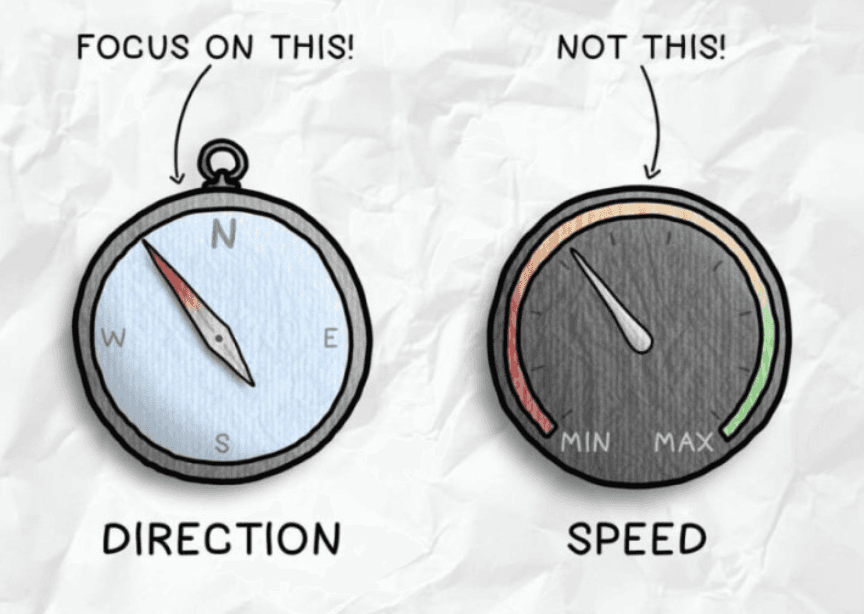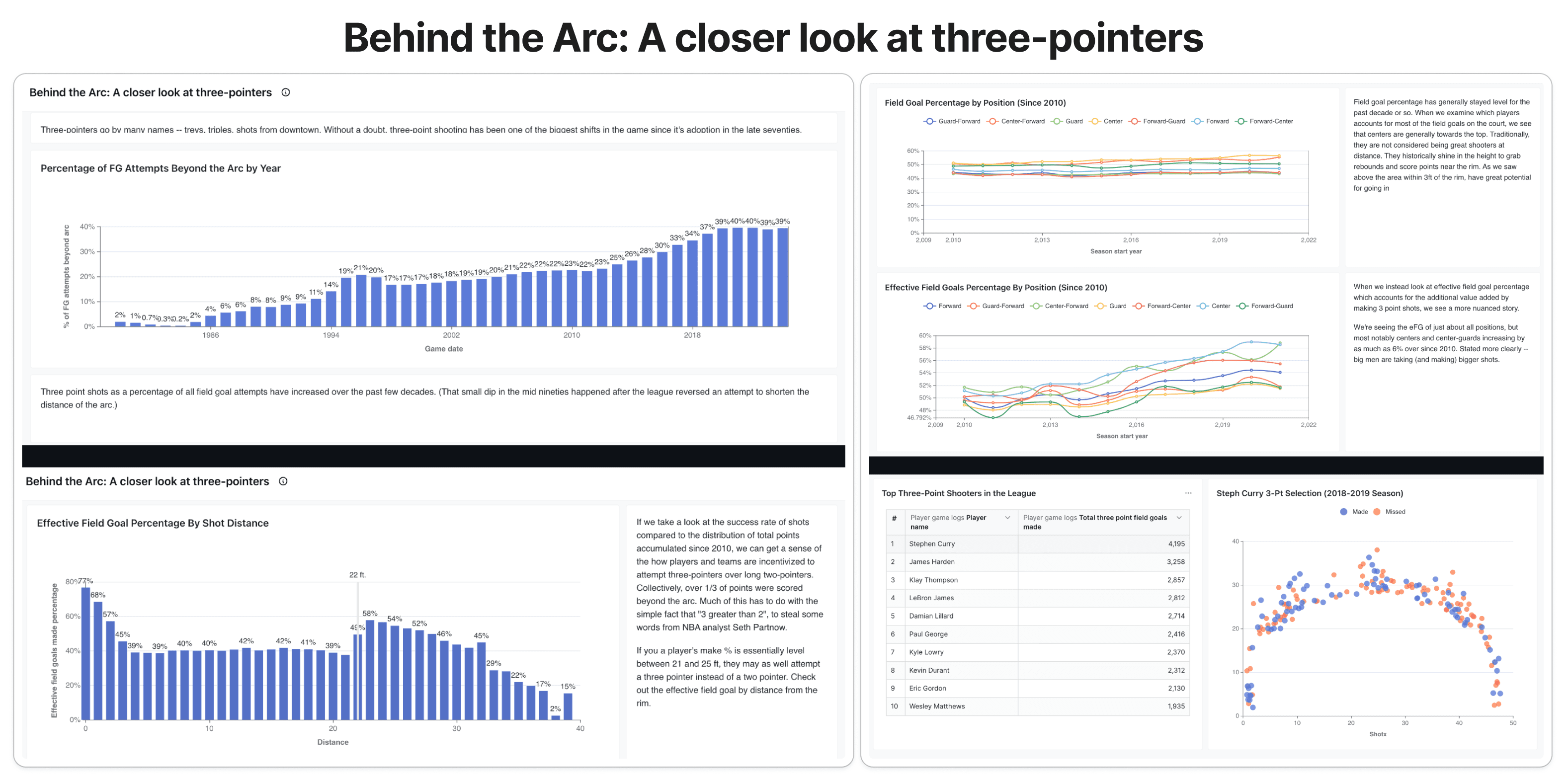Winning Strategies for Paradime's Movie Data Modeling Challenge
Learn tried-and-true strategies and analytics engineering best practices to excel in Paradime's Movie Data Modeling Challenge and beyond!

Parker Rogers
Jun 13, 2024
·
5
min read
Introduction
Paradime's Movie Data Modeling Challenge has officially kicked off! Participants worldwide are engaging with real movie and TV series data, crafting SQL queries, developing dbt™ models, and uncovering insights—all for a chance to win a $1,500 Amazon gift card!
Exciting news for those eager to get involved—the submission deadline isn't until May 26th! If you're interested in joining the challenge, sign up here!
---
Having judged over 20 projects from Paradime's recent NBA data modeling challenge, I gained firsthand insight into the diverse strategies employed by participants. It became evident that top performers shared a common thread: a well-defined strategy, enhanced by effectively leveraging Paradime and its robust features.
In this blog post, I'll detail the strategies that propelled these top participants to success and demonstrate how you can apply them to not only excel in the Movie Data Modeling Challenge but also enhance any data-related project. So, let's dive in, embrace the challenge, and demonstrate your impressive data modeling and analytics skills!
A Well-Defined Strategy
Effective participants employed a variety of robust strategies:
Understand Your Objective
Growing up in athletics (though I'm FAR from an athlete 🤣), I learned a timeless phrase: "Your direction is more important than speed. Many are going nowhere fast." This holds especially true in data analytics, where not having a clear objective can lead to significant time wasted.
In the Movie Data Modeling Challenge, your goal is straightforward: Utilize real movie and TV series data to craft SQL queries, develop dbt™ models, and derive insights—all for a shot at a $1,500 Amazon gift card!
In addition to understanding your objective, gain a clear understanding of the judging criteria and the challenge deliverables to enhance your chances of success.

Know the Data
Establishing a deep understanding of the data is crucial. This involves exploring the three datasets provided in Snowflake. Get to know each table's columns, their potential use cases, and how they relate to one another.
Identify data quality issues and potential roadblocks early on—this foresight can save you countless hours, inspire new analytical ideas, and help you identify additional data sources to augment your analysis.
Formulate your Questions (Any verify they can be answered!)
Start with questions that you can immediately answer with the available datasets:
What are the highest-grossing films of all time?
Which films have the highest/lowest ROI?
Which leading actors appear in the most films?
Then, think about what you want to explore but currently lack data for, like deeper dives into awards or DVD and streaming metrics. Since this information is not available in the provided datasets, you'll need to source and integrate it yourself.
Builders beware - Not all questions can be answered! Always verify the availability of data before committing to a question.
Measure Twice, Cut Once
This adage underscores the importance of careful planning and execution. In this context, "measure twice" refers to data preparation and validation in Snowflake, while "cut once" refers to building your dbt™ models in Paradime. Taking the time to meticulously prepare your data and validate your insights ensures your models are built on a solid foundation and are more likely to yield accurate and intriguing insights.
Telling a Compelling Story
Effectively communicating your insights is crucial. Use data visualizations, narratives, and compelling storytelling techniques to present your findings in a way that resonates with the judges. It's not enough to present complex and accurate insights; you must also weave a compelling narrative to back them up.
For inspiration, explore Spence Perry's first-place submission (🔗 link) from Paradime's NBA Data Modeling Challenge, noted for setting the scene effectively, building a narrative, and presenting valuable insights.

Now, having established a strong strategic foundation, let's explore how leveraging specific features in Paradime can amplify your success in the challenge.
Leveraging Paradime
Utilizing Paradime's various features can significantly boost your performance in the challenge. Here's an overview of some pivotal tools:
Code IDE
The Code IDE at Paradime is a powerhouse tool designed for both novice and advanced users. This integrated development environment streamlines your workflow, allowing for an efficient and effective modeling process. Follow this interactive tutorial to best understand all the features at your disposal, and here's a brief summary of what the tutorial covers:
Integrated Terminal
Run dbt™ CLI commands directly within the IDE to streamline your development process. 📺 Video | 📚 Documentation
Data Explorer
Quickly preview the results of your models without the need to compile your dbt™️ resources first. This feature saves time and enhances your ability to iterate rapidly on model development. 📺 Video | 📚 Documentation
Data Lineage
Visualize how data flows through your models, helping you understand the relationships and dependencies in your project. This insight is crucial for managing complex data transformations. 📺 Video | 📚 Documentation
Data Catalog
Maintain and access your project documentation directly within the IDE, ensuring that your team always has the latest information at their fingertips. 📺 Video | 📚 Documentation
Moving on from some of the the core IDE features, let's delve into how Dino AI can revolutionize your data modeling workflow.
Dino AI
Dino AI integrates seamlessly within the Code IDE, providing intelligent assistance that enhances your productivity and speeds up your SQL and dbt™ development.
Commit Messages
An intelligent code generator within your editor, offering custom code suggestions based on your dbt™ project's structure and content. 📺 Tutorial | 📚 Documentation
Copilot
This feature offers custom code suggestions right in your editor. Simply type "ask dino;" in any .sql file to receive tailored advice. 📺 Tutorial | 📚 Documentation
Autocomplete
Smart autocompletion for SQL and dbt™ code, streamlining the creation of queries, columns, calculations, etc. Just type "/dino/" in any .sql file to being autocompletion. 📺 Tutorial | 📚 Documentation
Chat Panel
Similar to ChatGPT, this feature offers real-time assistance for coding questions, directly within the editor. 📺 Tutorial | 📚 Documentation
These innovative features ensure that you're equipped with the best tools to tackle the challenge efficiently and effectively.
Where to go from here
By adopting these well-defined strategies and leveraging the cutting-edge features of Paradime, you're well-prepared to excel in the Movie Data Modeling Challenge and further enhance your skills in data projects. Don't miss your chance to participate and potentially win a $1,500 Amazon gift card. Sign up today and start your journey!
📅 Submission deadline is May 26th, 2024 📅












